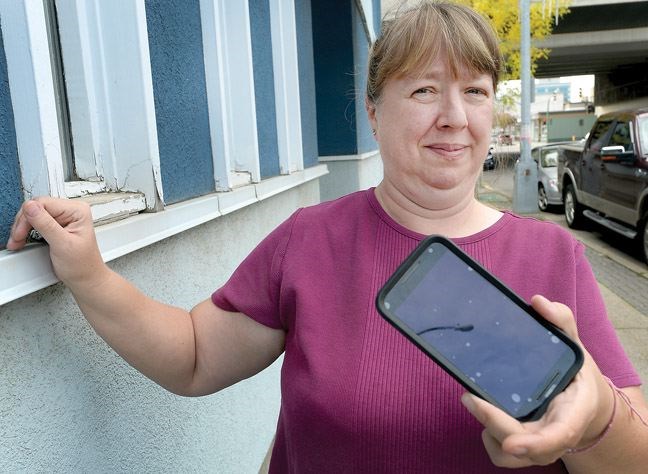Prince George has seen an upsurge in a nationwide scam that's been going on for years.
The fraud attempt first shows itself in the form of a text (or sometimes ads on websites advertising job openings).
The recipient is told of a job offer to become a so-called mystery or secret shopper. The duties of the job are to spend an amount of money sent to you by mail, keeping some for yourself as a wage, and keeping the products you buy.
A set of stores is assigned to you, on the pretense that their head managers want an honest opinion of customer services at your local branch.
But it is all a lie that could cost the victim several thousands of dollars. Veronica Ouelette considers it mostly lucky that she did not get hit by the big bill the thieves had in mind for her. After responding to a text sent to her phone, she was sent a cheque for $2,950 and told to immediately draw out $2,450 on that amount (some was to be routed back to the scammers in a separate transaction), keeping the rest for herself.
Most people in today's banking world would simply feed the cheque into their account via a common bank machine, then withdraw the assigned amount immediately after. What many people don't realize or fail to act on is the cheque takes sometimes days to be finally cleared by the bank. If it isn't a legitimate cheque, whoever touched it last in the transaction history is on the hook for the cash value.
Ouelette was tempted by the offer of employment as a mystery shopper but she was not so unguarded as to put the cheque transaction through the bank machine.
"I went in to do things through a bank teller, in person, because I just had a gut feeling," she said.
It was more than a gut feeling, in reality. She spotted spelling errors and other sloppiness in the mail she received from the Mystery Shopper claimants. It gave her clues she wasn't dealing with a reputable contact at the other end of this proposal.
"The bank told me right away it was a fake cheque and they had six or seven others, just at their branch of that one bank," said Ouelette.
"They caught it for me. It didn't end up costing me a penny, but if I'd done it through the bank machine or some other quick way of cashing a cheque, I'd have been on the hook for $2,450 that I really don't have."
She did not give the scammers any personal information other than her mailing address - no social insurance numbers or bank account info - which could have been another potential financial threat.
The RCMP are familiar with the variations of this fraud. It is so common that the federal government has an informational webpage about it at the Canadian Anti-Fraud Centre's website.
"If you receive money from an unknown individual or company and you are asked to forward it elsewhere - DON'T! Chances are you are dealing with a scammer," said the website.
The anti-fraud agency gave a list of common warning signs:
Be mindful where you post your resume; scammers use legitimate websites to seek out victims.
A legitimate employer will never send funds and request a portion of it back.
Do your research. A simple search on the internet can save you thousands of dollars.
Beware of unsolicited text messages offering employment.
Likewise, the Better Business Bureau has been seeing this scam show up in consumer complaints for a long time.
The BBB also has a set of guidelines to consider whenever you might see a Mystery Shopper offer or something similar.
"Be wary of work-at-home jobs. Real work-at-home jobs are scarce, so be cautious when you find these postings," said a BBB statement. The consumer protection firm suggests asking to speak to these so-called job providers in person, get their names and positions, then start Googling them. If they are legitimate, the search will yield the evidence more readily than taking someone's word for it. Also, don't use any information (website addresses, phone numbers) provided in their correspondence to verify their claims, as they can fake websites and have actors answer the phone using their trickery.
Other BBB recommendations include never disclosing personal information, especially something involving a number (social insurance, bank account, etc.) or a password. Be wary, too, of offers that require no experience, immediate start, or the expectation that you move quickly on some task so as to secure the position, or to pay for training or post any amount of your money in order to get their money. These are scams.
What the RCMP and BBB equally stress is, if the offer sounds amazing, tailor made for you, just in your time of economic need, or if it sounds so easy you don't have to do any preparation for that job, it is probably a scam.
In other words, they both said, "if it seems too good to be true, it likely is."

.png;w=120;h=80;mode=crop)

